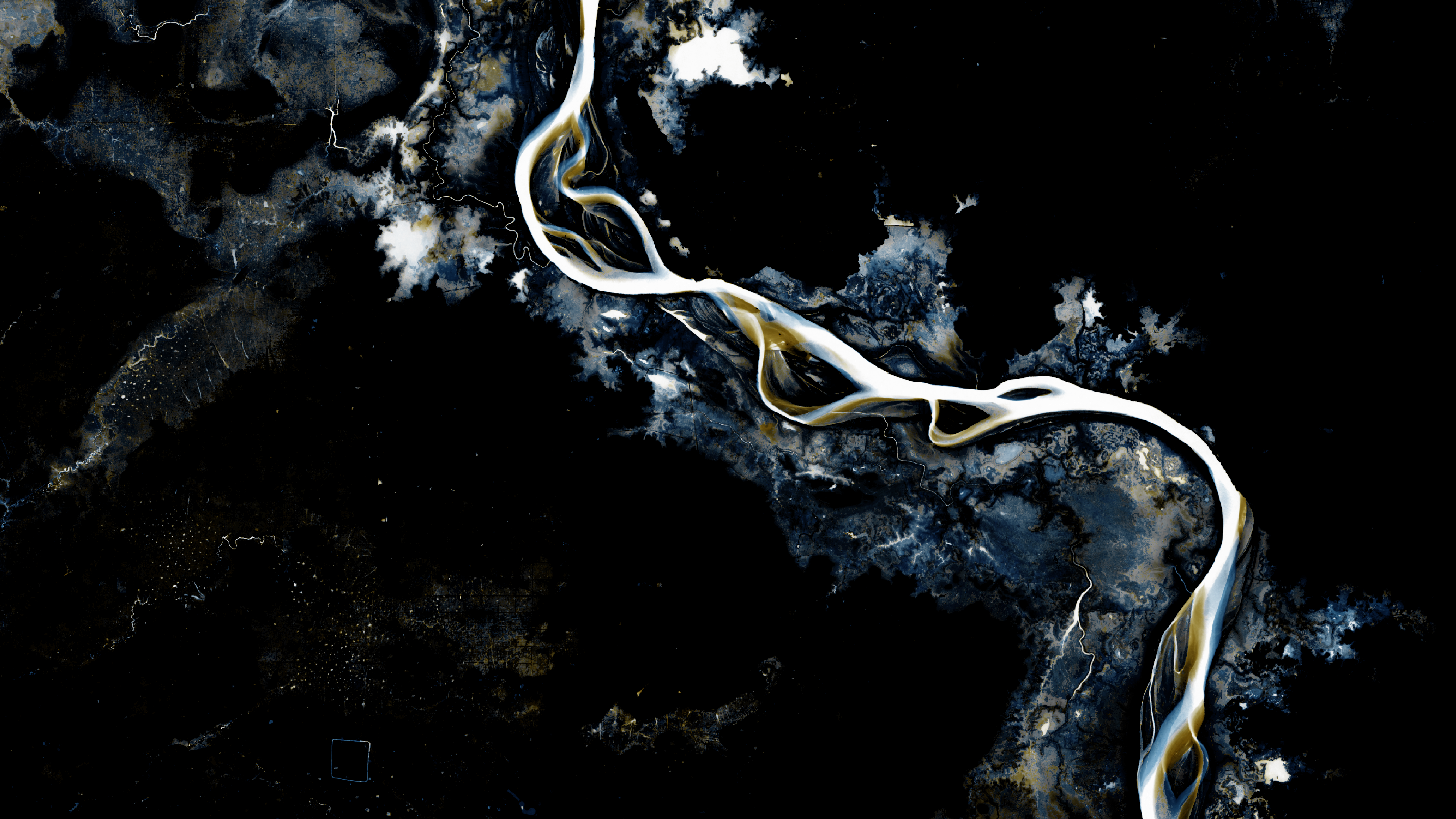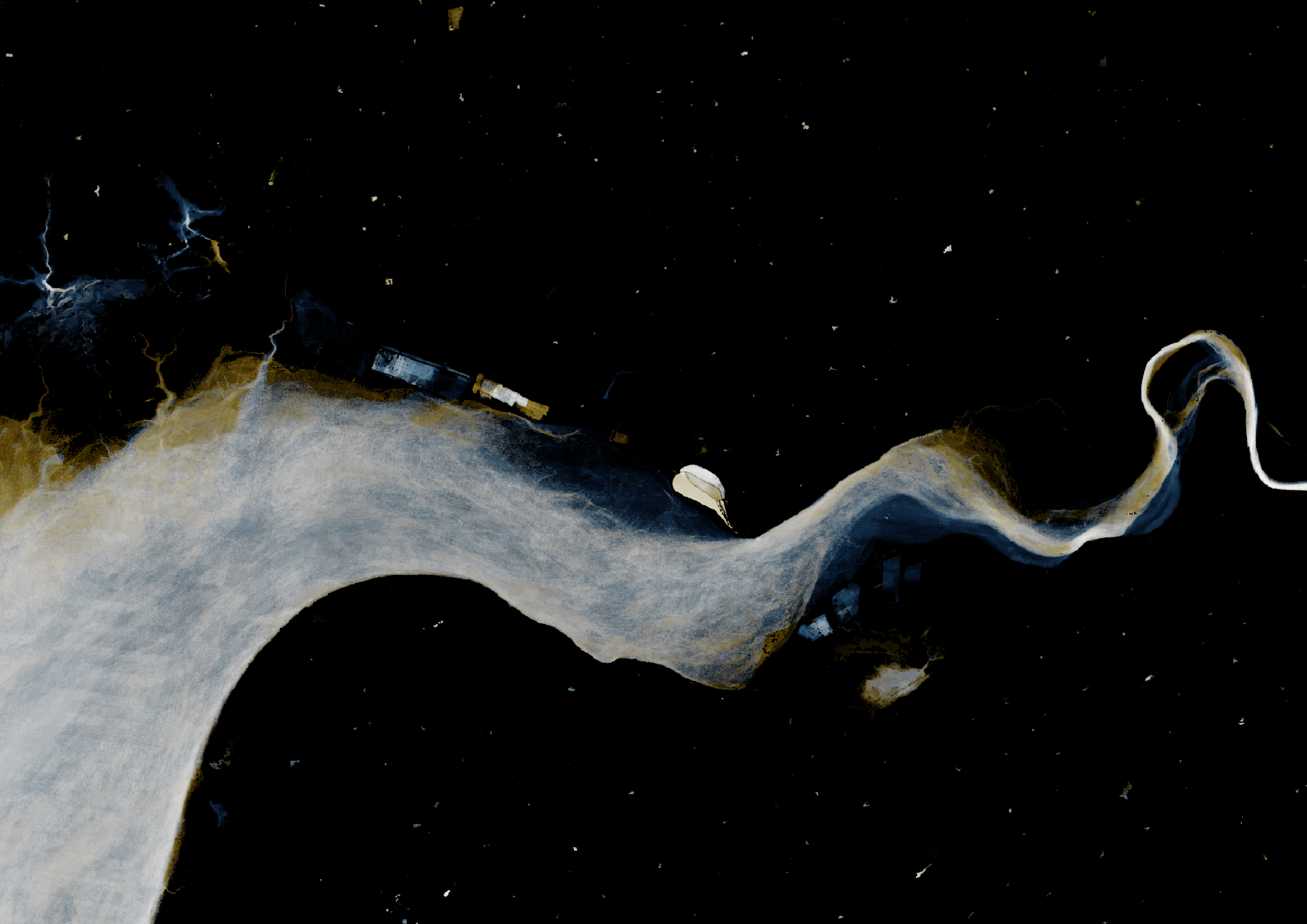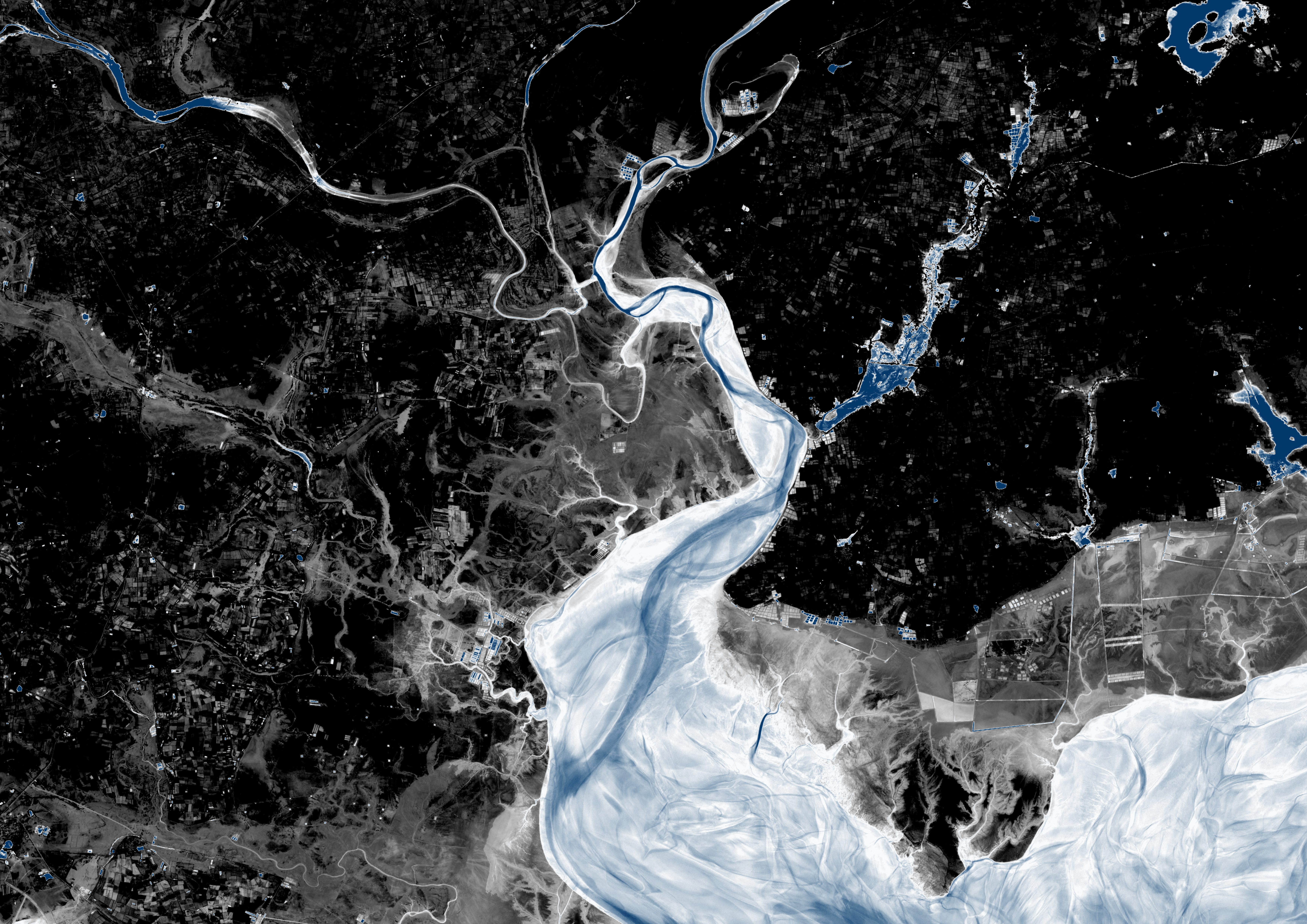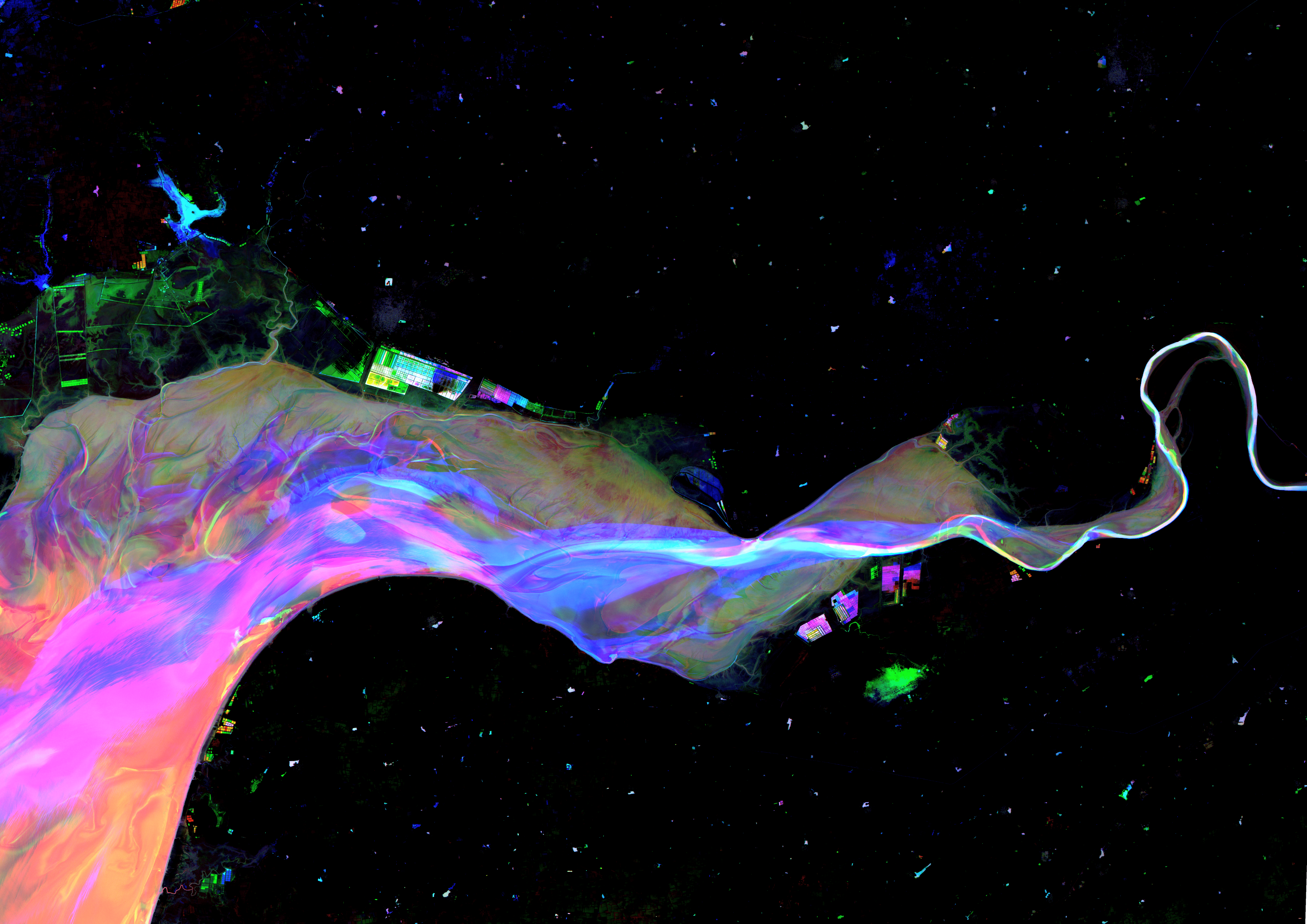
Turbulent Displacements
Human activities and designs in the Indian peninsula are radically re-shaping ecological, cultural and hydrological circulations that exist in this space. This transitional society is a diverse context that is undergoing major shifts through rapid urbanisation, industrialisation and large infrastructural intervention.
The project critically examines diverse, complex and overlapping water management systems that have emerged in the western part of India, particularly the development of largescale water infrastructure in the state of Gujarat. It combines an analysis of how these systems transform organisations of space across large territories, through remote sensing. It does so, in relation both to the colonial regime and to post-colonial modernisation, interpreting the project of building the Nation, as one that attempts to stabilise the natural-cultural environment— particularly by the privileging of the perennial over the seasonal, the permanent over the ephemeral, the linear over the cyclical and the static over the dynamic, in the process dramatically disrupting existing socio-ecological fabrics.

Through a whole world of extremely large, big and small dams, pipelines, canal systems, conduits and embankments, the Indian state attempts to ‘unify’ various divergent groups, interests and pluralities that exist in its space of operation, whilst consolidating political power through the creation of a centralised command of water.
On the other hand, large scale, unmonitored and invisible extraction of ground water in the form of an explosion of bore wells and submersible pumps, occuring at the scale of the individual land owners, creates urban fragmentation by de coupling urban organisation from the availability of surface water, embedding these territories into global circulations of goods and capital, whilst causing the serious and irreversible depletion of the underground aquifer systems.
The project attempts to create an alternative imagination around these interventions at a time in which the ‘stability’ of the ‘Earth System’, is unravelling. Apprehending the various hydrological systems of rivers as living, dynamic and endlessly complex, It takes into account their connected surface and subsurface flows, and responds to them through notions that emerge with an engagement with the ground—that of porosity, permeability and percolation, rather than laminar flow and frictionlessness.

The project is the deployment of a spatio-temporal protocol to deploy polities that replenish specific aquifer systems, and become centres of sensing, deliniating territories based on watersheds, planning interventions and developing structures of self governance based on territorial interdependencies - deeply embedding settlements and polities into their spaces of operation, and within the depth of the ground.

These projects propose diverse, hybrid and composite systems of water management to create more adaptable, resilient, and equitable systems that can contribute to the long term inhabitability of these territories. Incorporating notions of non instrumentality and soft boundaries, whilst redefining a shared sense of ‘security’.
The Project is not imposed from above through large infrastructure , or built from the bottom up through individual extraction from the ground, but by lateral engagements across watersheds and urban structures that open up new lines of transit across an uneven landscape.










